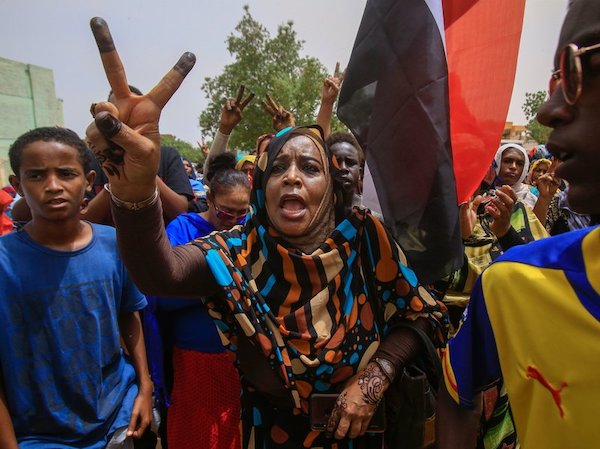by VIJAY PRASHAD

What Happened in Sudan?
- On 19 December 2018, an uprising began in Sudan. This uprising would culminate in the removal of Sudan’s president–Omar al- Bashir–from power on 11 April 2019. The army staged a conser- vative military coup to abort the revolutionary tide and keep the same old policies. It dissolved the parliament and established a two-year military regime led by the Transitional Military Council. The revolutionary forces–galvanised into the Alliance of Freedom and Change, with the Sudanese Communist Party and the Sudanese Professionals Association at the front–continued their march forward, determined to make a full revolution. The clash be- tween the Transitional Military Council and the Alliance of Freedom and Change continues. It could either result in an Egypt-like solu- tion, where the military regime masquerades as a democratic par- ty, or it could move forward with a revolutionary democracy.
Why Did the Sudanese People Rise?
- In 2018, the range of negative social pressures rose as a result of the stagnation of Sudan’s economy. The growth rate fell to -2.3% that year. This was a result of at least four reasons:
- Wars. Omar al-Bashir had been in power since 1989. He over- saw two deadly wars in this period. The first war was between the north and south of the country, a war that in its second phase last- ed from 1983 to 2005. This war resulted in the death of two million people, the displacement of four million people, and the partition of the country into Sudan and South Sudan in 2011. The second war was in the province of Darfur, which resulted in the death of millions and the destruction of that vast, marginalised region that has been deeply impacted by the desiccation of the Sahara Desert. Both conflicts weakened Sudan.
- Oil. Sudan’s economy is dependent on oil exports, with most of the oil in the southern part of the country. With the partition of Sudan, the country of Sudan lost 75% of its oil reserves to South Sudan. Nonetheless, in 2008, 21.5% of Sudan’s GDP came from oil exports (and drove a growth rate of 11.5%). When global oil prices collapsed in 2014, Sudan’s economy went into rapid decline.
- IMF. By 2017, Sudan had an external debt of over $50 billion–61% of its GDP–with about 84% of it in arrears. Sudan owed 89% of this debt to countries and to commercial banks (the rest to international financial institutions). In November 2017, the IMF rec- ommended that Sudan’s government cut bread and fuel subsidies and devalue the Sudanese Pound. The government followed the IMF advice. Already, 50% of the Sudanese population lived in pover- ty. The situation went out of control after the subsidy cuts and the devaluation.
- Since 1976 Sudan has drifted into the worldview of political Islam. The US-backed dictator Jaafar al-Nimeiri allied himself with the Muslim Brotherhood that year. A mass uprising erupted in April 1985, resulting in the overthrow of the al-Nimeiri regime and open- ing the way for the restoration of a democratic process. Attempts were made between 1985-89 to reach a peaceful solution to the civil war in the South and to abolish the Sharia law that was intro- duced by al-Nimeiri and the Muslim Brotherhood alliance. However, the democratic process was short-lived. In June 1989 the Muslim Brotherhood staged a coup, toppled the democratically elected gov- ernment, and dissolved parliament, political parties, trade unions, and all civil society organisations. It imposed the most reactionary regime resulting in the continuation of the war in the South, the dismissal of over 250,000 workers and civil servants from work, and the establishment of ‘ghost houses’ where leaders of the demo- cratic forces were tortured (and some killed). Omar al-Bashir, who inherited this regime, continued the Muslim Brotherhood agenda. Rather than tackle the serious political, economic, and social prob- lems in Sudan, the governments of al-Nimeiri and al-Bashir hid behind a harsh cultural agenda (which included blasphemy laws, laws against women’s rights, and policies against the diversity of Sudan’s peoples and culture). Both al-Nimeiri and al-Bashir fell be- cause they had no answer to economic crises; their only response was repression against IMF riots.
How Did the Sudanese People Rise?
Monthly Review Online for more
